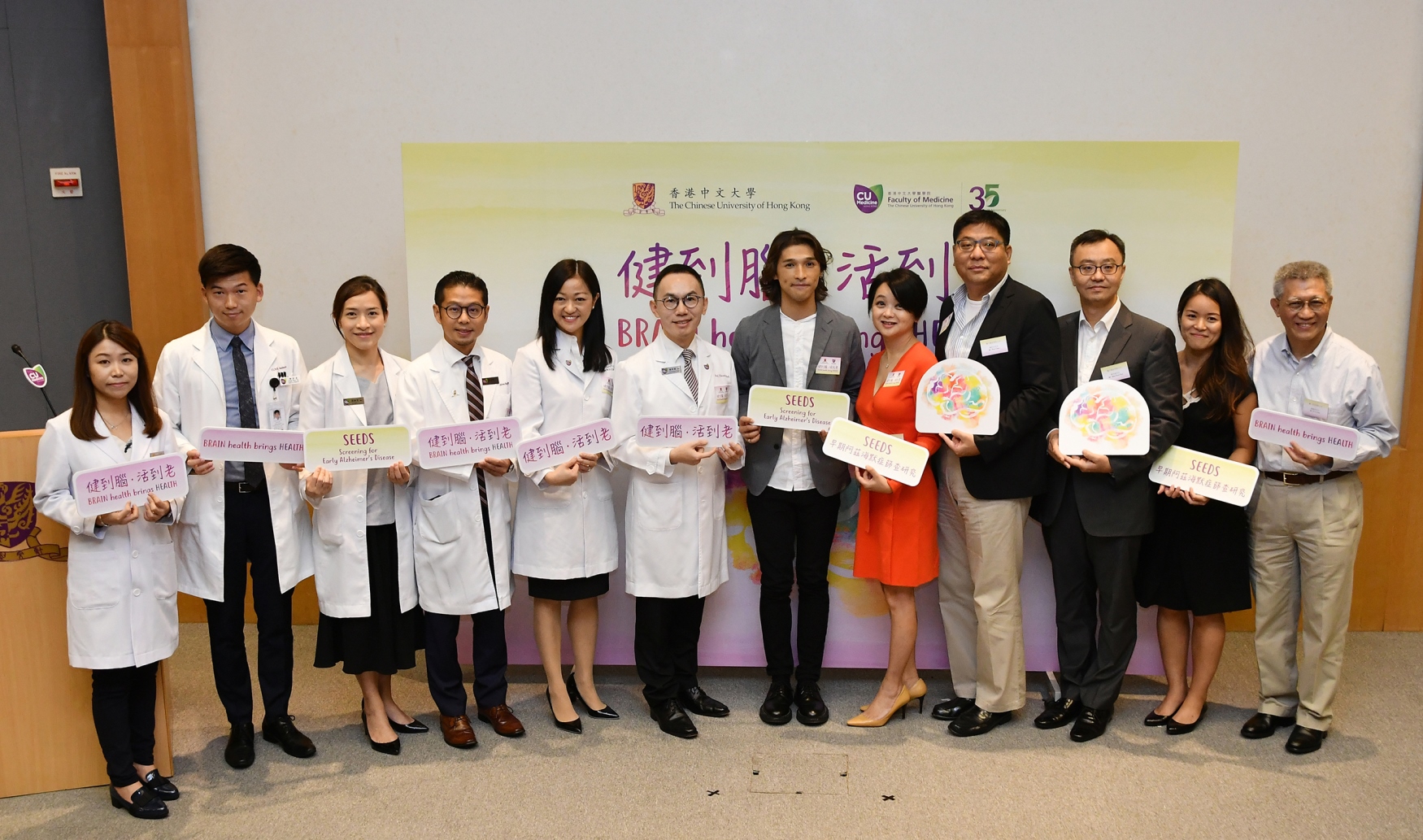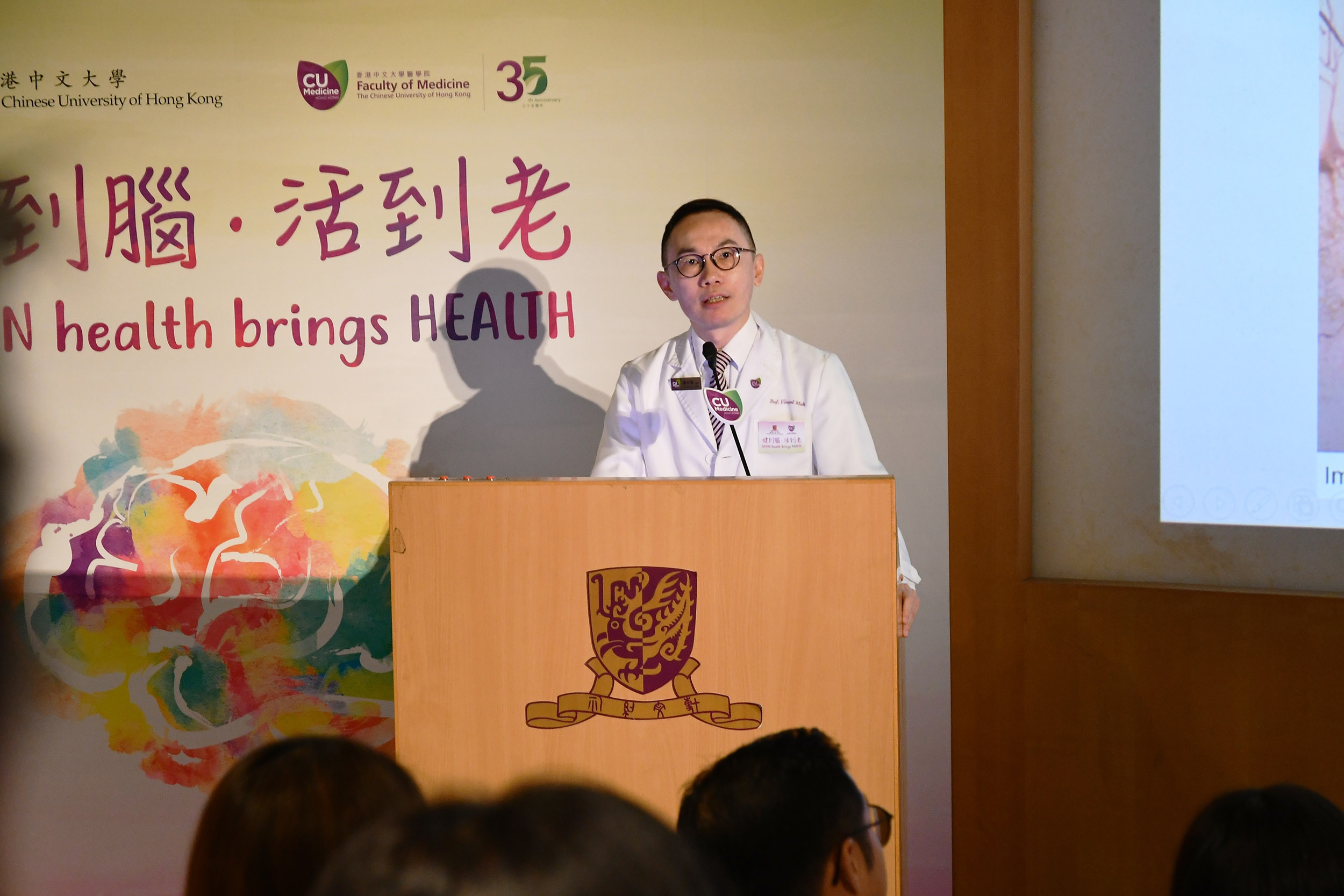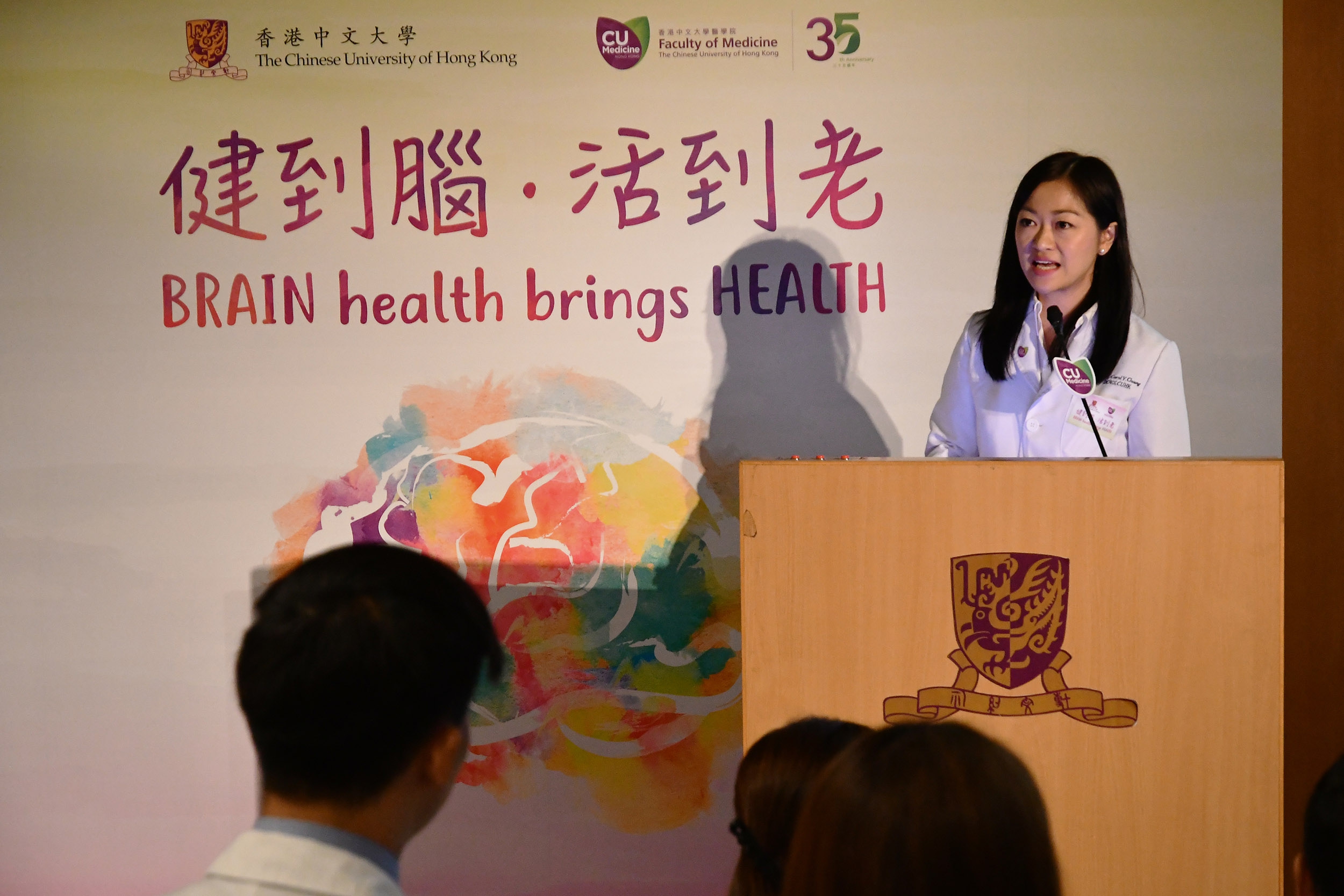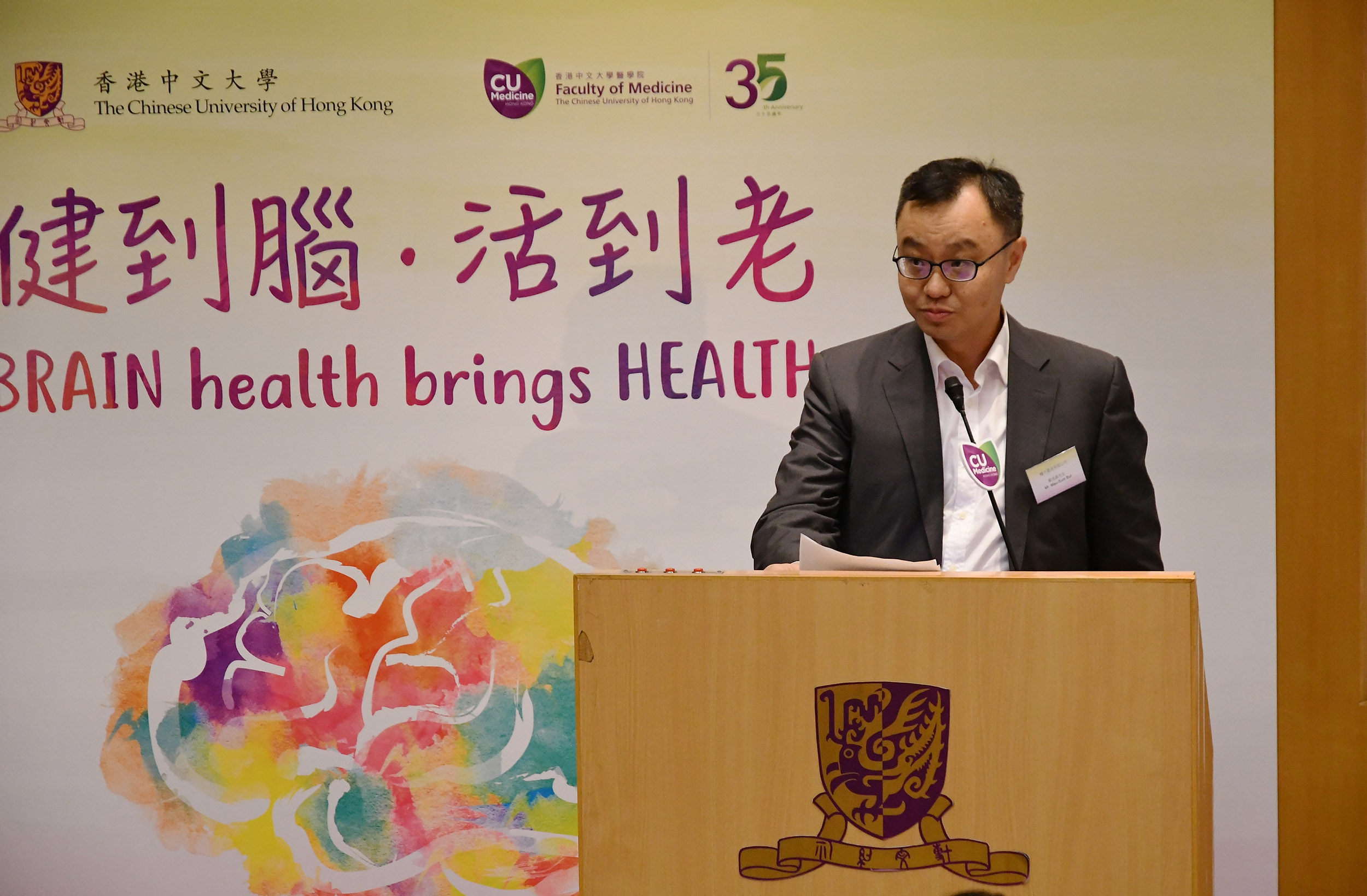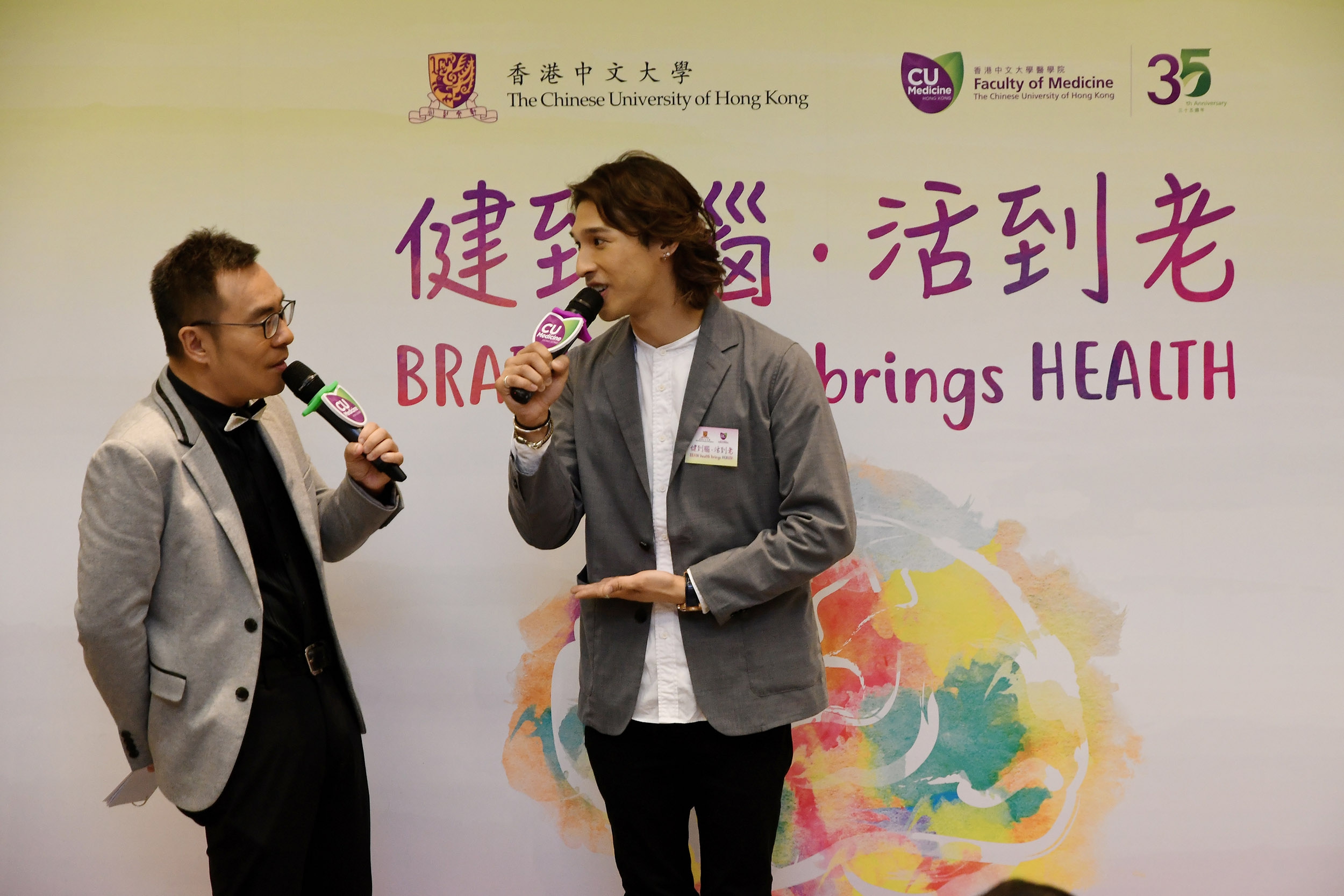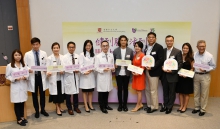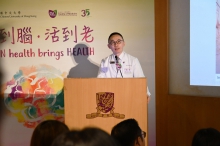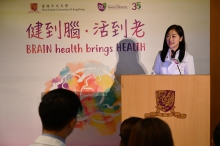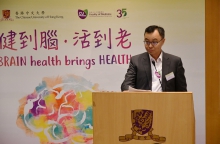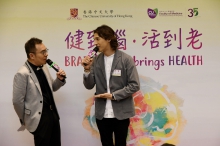CUHK
News Centre
CUHK Launches World’s First Study Utilizing Retinal Imagingfor Alzheimer’s Disease Screening in Chinese Population
Studies suggested that the treatment for Alzheimer’s Disease (AD, commonly known as senile dementia) may reduce the rate of cognitive decline if it is given when the disease is still at an early stage. However, current diagnostic investigations (e.g. PET) for early AD are not easily accessible. Under the support from Seeds Foundation Limited and the Health and Medical Research Fund (Food and Health Bureau), the Division of Neurology at the Department of Medicine & Therapeutics, Faculty of Medicine at The Chinese University of Hong Kong (CUHK), has launched the ‘Screening for Early AlzhEimer’s DiseaSe Study’ (SEEDS Study) to explore other methods (e.g. retinal imaging) for screening AD in Chinese population, so as to enhance detection of early AD. The SEEDS Study is a cross-departmental collaboration with the Department of Ophthalmology and Visual Science at the Faculty of Medicine of CUHK, together with Hong Kong Sanatorium & Hospital.
Treatment for AD lies on early detection – early intervention
In Hong Kong, 1 in 10 people who aged 70 or above suffers from dementia; while in elderly people who aged 85 or above, 1 in 3 has dementia. However, only 1 in 10 was diagnosed or has sought medical consultation.
Over half of dementia cases are linked with AD. It is associated with an excessive accumulation of abnormal protein – amyloid plaques and neurofibrillary tangles in our brains, leading to the death of brain cells and resulting in progressive cognitive decline.
Professor Vincent Chung Tong MOK, Head of Division of Neurology, Department of Medicine and Therapeutics, Faculty of Medicine at CUHK, stated, ‘Recent studies suggested that anti-amyloid treatment may prevent further cognitive decline only if it is given when the disease is still at an early stage, i.e. mild cognitive impairment (MCI). The earlier we can detect, the earlier we can intervene when the disease is still mild. We hope to slow down or even stop the progression, and reduce the suffering from patients and the caregivers.’
SEEDS Study explores biomarkers and new investigations in Chinese population
Currently, diagnosing AD at an early stage requires the use of amyloid-PET scan or testing of cerebrospinal fluid collected via lumber puncture. Such investigations are not easily accessible and invasive. The objective of launching the SEEDS Study is to explore whether retinal imaging or blood biomarkers in the Chinese population can be used to screen for early AD.
Dr. Carol Yim Lui CHEUNG, Assistant Professor, Department of Ophthalmology & Visual Sciences, Faculty of Medicine, The Chinese University of Hong Kong, explained, ‘The retina exists as an extension of central nervous system, offering a “window” to study cerebral microvascular and neurodegenerative damage. We have made significant progress in developing and applying retinal imaging as a non-invasive biomarker test to study microvascular and neuronal pathology in the eye and in the brain. The current proposed study would lead us to enhance the use of retinal imaging techniques in predicting who will develop cognitive decline in patients with AD or early dementia patients with MCI, as well as deeper understanding of early vascular dysfunction and neuronal injury in the pathophysiology of Dementia.’
100 subjects aged between 50 to 80 will be recruited to the SEEDS Study, including patients with mild cognitive impairment, AD dementia and subjects with normal cognition. The subjects will undergo a series of clinical assessments, including cognitive test, blood test, brain MRI and retinal imaging conducted by the research team at the Faculty of Medicine, CUHK. They will also undergo an amyloid-PET scan at Hong Kong Sanatorium & Hospital.
‘Medical research is very crucial in the fight against disease and this is why I support my father joining the SEEDS Study. Even as a patient with dementia himself, it is meaningful to participate in research as a mean to fight against AD. I hope there will be no suffering from dementia in our next generation,’ said Mr. You Nam WONG, Hong Kong artist and son of the first subject in the SEEDS Study. ‘I hope the public can have higher awareness and better understanding of dementia, so as to prevent from it.’
Donor of the SEEDS Study, Mr. Mau Sum BUT, Board member of the Seeds Foundation Limited, shared, ‘3 years ago, the Seeds Foundation supported the research team from the Division of Neurology of CUHK in setting up the first research registry on early onset dementia in the Chinese population. It is encouraging to see what they have achieved. Knowing that the SEEDS Study focuses on early Alzheimer’s Disease, we decided to continue our support. We hope the study can result in simple and accessible screening tools for AD, so as to provide timely treatment for those who suffered.’
‘Brain Health Brings Health’ slogan to raise public awareness in brain health
A recent study published in The Lancet, one of the world’s most influential medical journals, suggested that more than a third of dementia cases might theoretically be preventable. Preventive research and education are two main focuses of the Neurology team of CUHK. The team is now advocating ‘Brain Health Brings Health’, with the hope to raise public awareness and participation in maintaining a healthy lifestyle beneficial to the brain.
Incidence of dementia and other neurological diseases, such as stroke, Parkinson’s disease, epilepsy are increasing with an ageing population. In Hong Kong, cerebrovascular disease and dementia ranked the 4th and 8th in the top 10 major causes of death, respectively. The CUHK team hope their work can help end, slow down progression and reduce suffering or disability brought by neurological diseases, not only for the Chinese population, but also patients from around the world.
CUHK Medicine and Hong Kong Sanatorium & Hospital launches the ‘Screening for Early Alzheimer’s Disease Study’ to explore other methods (e.g. retinal imaging) for screening AD in the Chinese population.
Professor Vincent Chung Tong MOK, Head of Division of Neurology, Department of Medicine and Therapeutics, CUHK wishes the slogan 'Brain Health Brings Health' can raise public awareness of brain health.
Dr. Carol Yim Lui CHEUNG, Assistant Professor, Department of Ophthalmology & Visual Sciences, CUHK explains how to spot out risk groups of AD from retinal imaging analysis.
Mr. Mau Sum BUT, Board member of the Seeds Foundation Limited wishes their support to CUHK Medicine’s research can result in simple and accessible screening tools for AD, so as to provide timely treatment for those who suffered.


